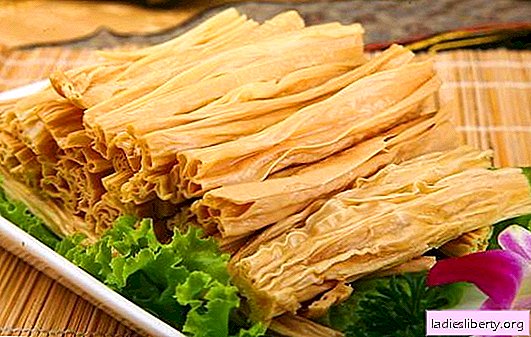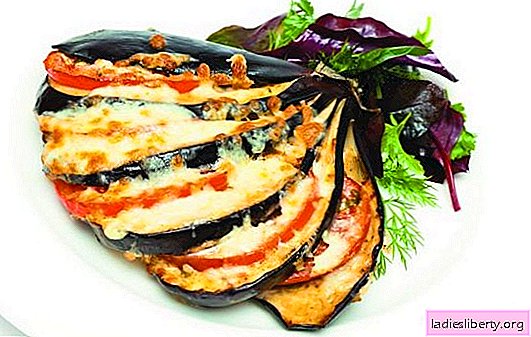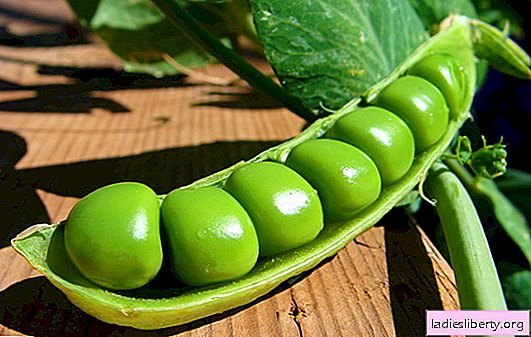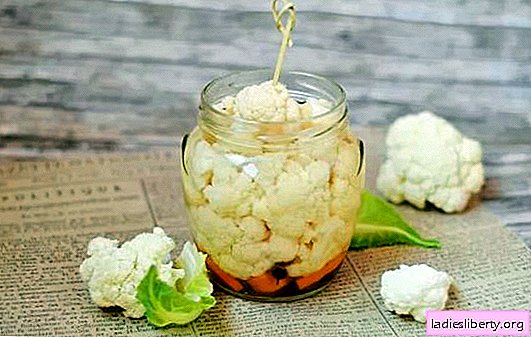
Asian cuisine, in addition to hot spices, is often flavored with various stories and mysterious names. A rather interesting and striking example of this kind will be a product with unusual, judging from the name, mysterious properties.
Soy asparagus is by no means related to asparagus and really has outstanding qualities. But first things first.
The legendary origin of soy asparagus
According to legend, the invention of soy asparagus was promoted by the Chinese emperor Qin Shihuandi, in about the 200s. BC. He was very worried about the coming old age and he was trying to find immortality. He wandered for a long time, inspected his lands, handed out assignments for the discovery of the elixir of youth, met with sorcerers and magicians. After many efforts, fuju was finally offered - soy asparagus, which, according to the statements of the sorcerers, could extend its life. But the powerful emperor was greedy, and after trying to get to the immortal islands on his own, he became ill and died after some time.
Soy asparagus
Fuju (fupi, as well as doupi or yuba) - dried foam collected from boiling soy milk, obviously, has no relation to asparagus. And we called it so because it is sold in the form of shoots of regular asparagus. The beginning of fuju consumption in East Asian countries dates back to the 16th century. Today, fuju is widely used in Japanese, Chinese and Korean cuisines in fresh or dried form.
The first written records of fuju were marked in 1587 in Japan. In the diaries, Matsuya Hisamasa describes that "yuba is just a film that forms on the surface of soy milk." Other records about fuju appeared almost at the same time in China.
In the modern world, fuju is mined using the same technology as 400 years ago. During boiling of soy milk, a film in the form of yellowish sheets is removed. Fuju can be purchased on the market in fresh or dried form, in the form of sheets or sticks. It has yellow or white, glossy or translucent color.
Composition and beneficial properties of fuju asparagus
It has a simple composition, is a combination of protein film and fat. It is rich in a variety of nutrients, as well as vitamins and minerals.
• Protein. Due to its high protein content, it can help reconstruct damaged protein tissues inside the human body. It can contribute to a speedy recovery after illness, as well as restore physical strength. Soy protein, by the way, is closest to the animal, which can be especially useful for a vegan diet.
• Soy asparagus also rich in calcium. Contains up to 116 milligrams of calcium in 100 grams of product. Promotes bone growth and development in children, prevents osteoporosis in the elderly.
• Amino acids and trace elements. Contains these substances in large quantities, which support the growth and development of cells of the human body. Strengthen the immune system.
• Lecithin. A particularly useful component for older people who need an increased intake of lecithin for the prevention of cardiovascular disease and Alzheimer's disease.
• Glutamic acid. Elevated levels (2-5 times more than other legumes or animal products) play an important role in brain activity, which can also reduce the risk of Alzheimer's.
• Iron. Also, yuba is rich in iron, which is easily absorbed by the body, has a certain effect on iron deficiency anemia.
• Other trace elements. Phospholipids and Saponins can reduce blood cholesterol, prevent hyperlipidemia or atherosclerosis.
Also, due to its qualities, yuba can help with menopause and similar problems. The increased content of phytohormones in soy asparagus partially compensates for the lack of hormones in women, which mitigates the symptoms of changes in the reproductive system. Plus, yuba reduces the risk of malignant tumors in the chest.
From the foregoing, it follows that the benefits of soy asparagus can be estimated by the fair sex, especially sportswomen, since this food has a complex effect on the female body.
Contraindications and possible harm from soy asparagus
Due to differences in the manufacturing method, the calorie content of yuba is slightly higher than that of other soy products, about 457 kcal per 100 grams. Some dishes made from fried yuba have even greater calorie content, reaching 472 kcal per 100 grams, and this is more than the same weight of pork meat. Therefore, those who need weight control, it is better not to eat yuba too often.
People who are allergic to legumes should better refrain from eating soy asparagus. It can cause skin irritation, recurring diarrhea, upset stomach, headache, sore throat, and asthma.
Jade, renal dysfunction - can also be an argument in favor of abandoning the yuba. Otherwise, this will aggravate the condition. Patients with diabetes mellitus, acidosis and gout, or those taking tetracycline or glargine, should also be careful.
Also, you can not feed children with soy products. Otherwise, it may cause deviations in the development of the reproductive system. In adults, a negative effect on abuse, yuba can have on the thyroid gland and gastrointestinal tract.
Recommendations for the selection and use of soy asparagus
Before use, the dried product is usually soaked for several hours in water. Yuba tastes good, it can be cooked as a separate dish, or as part of a salad or soup. It goes well with soy sauce. The best time to eat it is noon. This will add enough energy to the body to combat fatigue in the afternoon work. Also, such lunch will contribute to better weight control than dinner or a soy asparagus snack in the middle of the night.
Be careful if you are in the eastern bazaar and are planning to buy a yuba. Do not take risks and do not buy soy asparagus, which was made from genetically modified beans.
A good yuba has a pale yellow color and a crispy, easily breaking texture. It should not have mold, any impurities, spots or insects. It should have a characteristic aroma, without third-party odors.
Bad yuba has a grayish, brown, or dark yellow color. It has a sour smell, is covered with spots, in general, it has the anti-qualities of a good yuba. Cooked food from such a product will be acidic, bitter and have other unpleasant tastes and smells.
In general, soy asparagus is a fairly versatile product that can easily replace meat in the diet of vegetarians. A useful yuba will become as an additive for children due to a large number of calories of plant origin. From yuba, you can cook various dishes, enrich your diet, add a variety of nutrients. The main thing is not to zeal and not to repeat the mistakes of the Chinese emperor - not to be greedy, and then soy asparagus will bring benefits and healthy nutrition to your body.











